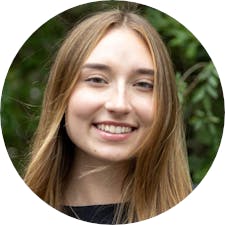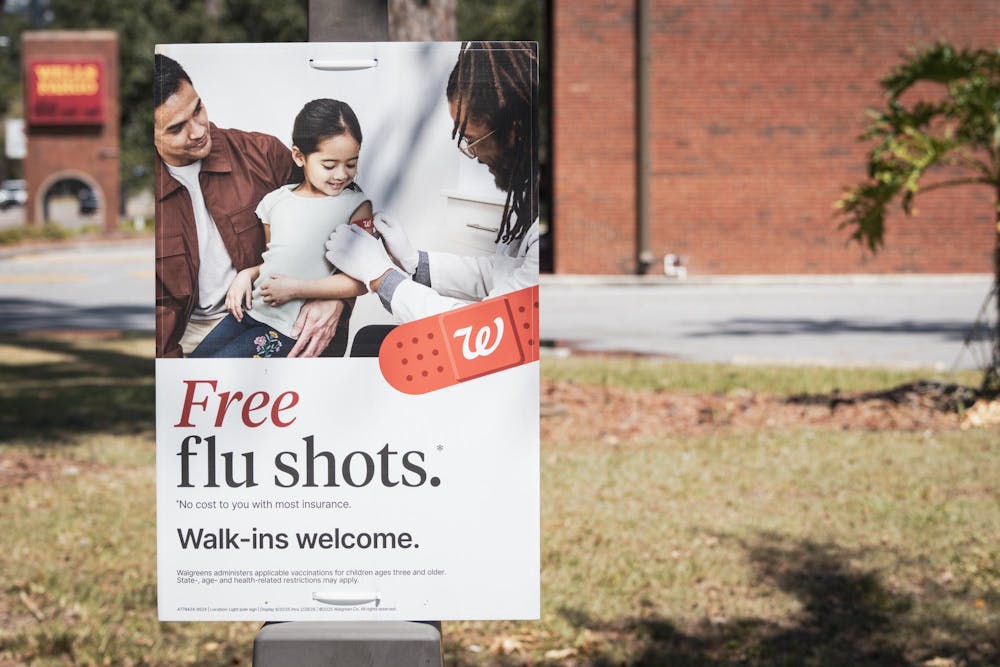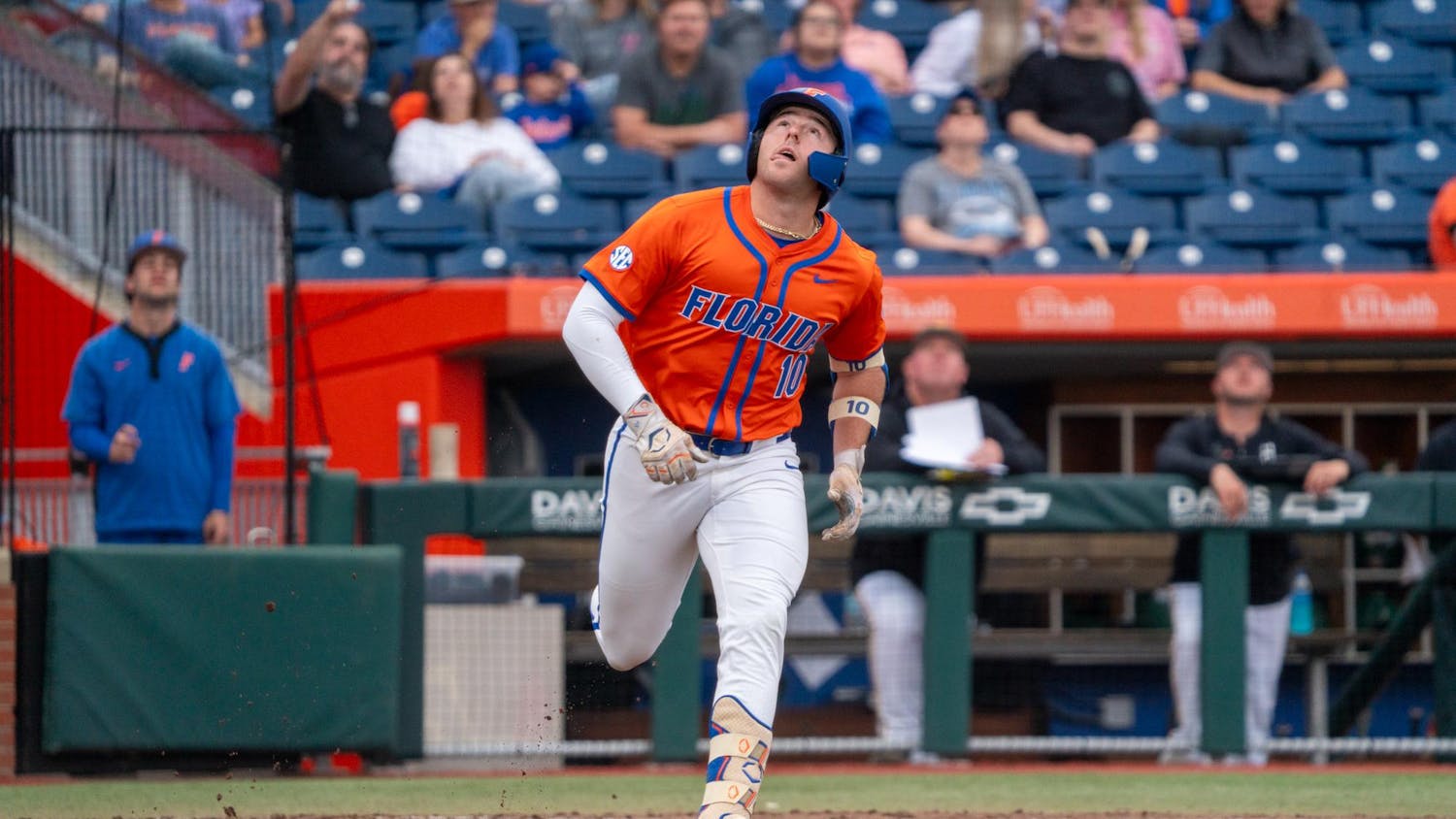Read more from The Alligator's "Ripple Effects" special section here.
Over the past four years, Eileen Branham said, she has received two doses of the COVID-19 vaccine and two boosters with no problems.
This year was different.
Branham, a 51-year-old physical therapist in Gainesville, said she went to five pharmacies in September to get the vaccine. She was turned away by all and was told they either did not have the vaccine or could not give it to her. Finally, she was able to get one at her sixth pharmacy, CVS Health, with a doctor’s prescription.
“It was incredibly frustrating,” Branham said. “It’s a vaccine that we’ve all been receiving for the past four years, and I don’t understand why there’s been this sudden change in accessibility.”
She’s one of several Gainesville residents concerned about the accessibility of COVID-19 vaccinations this season.
CVS Health and Walgreens limited access to the vaccines in Florida because of a lack of guidelines from the CDC Advisory Committee on Immunization Practices. CVS, for example, requires patients to have an authorized prescription in certain states, according to a guideline published.
The Alligator has received two tips from residents expressing vaccine difficulties with other pharmacies, including Publix and UF Health.
Branham said one of her friends considered making the nearly 2-hour drive to a CVS in Valdosta, Georgia, after hearing it had the vaccine.
“It was ridiculous that we were basically having to shop around pharmacies,” she said.
She went to a Publix pharmacy, UF Health Pharmacy, and two different CVS pharmacies in Gainesville before she was able to get the vaccine at a third CVS.
Branham said she got different answers about why she couldn’t get the vaccine at each pharmacy. The answer varied: The vaccines in stock were expired, the new vaccine hadn’t arrived and patients needed a doctor’s prescription to receive one.
On Sept. 19, the ACIP set new guidelines for administering the COVID-19 vaccine. They decided to withdraw the universal recommendation and leave the decision up to patients.
This past June, U.S. Secretary of Health and Human Services Robert F. Kennedy Jr. removed the 17 sitting members of the ACIP and replaced them with eight hand-selected picks. According to AP News, several of the new members were critical of vaccines, especially the COVID-19 vaccine and mRNA vaccines.
The ACIP, a federal advisory committee that makes recommendations on the use of vaccines on U.S. citizens, also decided people will make individual decisions on whether they need a vaccine. Patients who want a vaccine must talk to their doctor about the risks and benefits before receiving one.
Retsef Levi, an MIT professor and head of the ACIP’s coronavirus subcommittee, said in a public meeting vaccine inaccessibility won’t be affected by a prescription.
“If you think about who is supposed to take those vaccines,” he said, “they are, by design, engaged with their physicians with respect to different prescriptions. We don’t feel that for those patients it would be something unreasonable to expect.”
This comes at a time when COVID-19 viral activity is high.
According to the Center for Disease Control’s National Wastewater Surveillance System, Florida’s wastewater viral activity level is “very high” for SARS-CoV-2, the virus that causes COVID-19. This is taken from people’s homes and shows the virus before they get tested, meaning Florida is experiencing a wave in the virus.
Alachua County totaled 163 COVID-19 cases in June and 292 in July. The most recent count, in August, reached 413 cases for the county.
Lori Gross, a 60-year-old physical therapist assistant in Gainesville, said she’s seeing a growing trend in COVID-19 patients. She said she wanted to get the vaccine to protect herself, her family and her patients.
Gross has three autoimmune diseases, including liver disease. She made an appointment to get her vaccine Sept. 26, after having to get a prescription from her primary doctor. She went straight to her doctor after hearing stories from her friends who were unable to get the vaccine.
One of her coworkers wasn’t so lucky. After answering a list of medical questions including her weight, time spent exercising each day and history of cancer, she didn’t meet the criteria for the vaccine. She had to pay $300 out-of-pocket for a vaccination because her insurance wouldn’t cover it without a prescription.
As a healthcare worker, Gross said she needs the vaccine because she can’t afford to take time off work. She said this experience has changed the way she views the healthcare system.
“It’s just very disappointing and sad,” she said. “Real science is being quieted for skepticism that has no research-based origins.”
Contact Sofia Bravo at sbravo@alligator.org. Follow her on X @sofiab026.

Sofia Bravo is The Alligator's Spring 2026 opinions editor and a junior journalism and political science student. She previously served as the enterprise health reporter, a copy editor and a translator. In her free time, she enjoys reading and bothering her friends with her digital camera.






